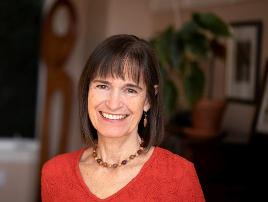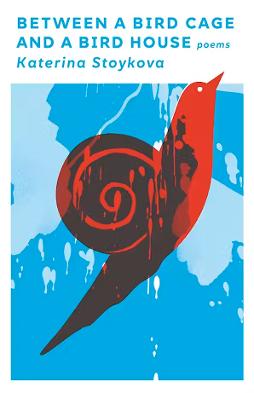Book Review
In her latest collection, Kentucky poet Katerina Stoykova explores the universal themes of love and loss, belonging and longing, grief and rebirth. Within these eighty-plus radiant poems, with an experienced eye, she examines what it means to be “here” versus “there”—geographically, but also psychologically. Stoykova, who emigrated to the United States from Bulgaria in the wake of the Soviet Union’s demise, aptly titles her book, Between a Bird Cage and a Bird House. Her poems narrate Stoykova’s own journey from a landscape of personal restraint and domestic abuse to a place of greater freedom, following her hard-earned escape from a series of cramped cages toward a house built on her own terms, constructed of her own actions.
While many of Stoykova’s lines simmer with sly humor and playfulness, her intimate confessional poems spill out in a stream of stark images and memories not uncommon to the immigrant experience. Fear. Rejection. Misunderstanding. Loneliness. The virtue of universality aside, Between a Bird Cage and a Bird House reflects Stoykova’s unique journey, that of a woman aching for autonomy. Within her poems’ pulsing narrative arc, Stoykova blends the rhythms and beats of her risky self-survival story with an exuberant set of love songs to the poet’s chosen home, America, and its liberating force. On the opening page, she writes:
America, you are so big. I feel
endless.
Not the spider,
But the web itself.
Elsewhere, in a gloss on what may be William Carlos Williams’s best-known poem, Stoykova writes:
So much depends
uponthe kindness of others
to makea foreign country
yours,white chickens
and all.
Culturally relevant. Candidly personal. And crafty in all the best ways. This is a book with a structure that balances real-life suffering with a convert’s over-riding desire to believe in the future. The sacrifice of everything that one knows is the poet’s answer to the call of independence. And yet, there is so much lightness in this collection. So much air and thrill and pleasure. Details of daily life collide with moments of reflection and remembrance of the long road she’s taken. The challenges are understood, rather than named, but the specifics of a transplanted life (basement rooms, a chocolate chip cookie) lie exposed, line by line.
America, do you remember—three weeks upon landing, I sobbed
in the basement of the English Language Multicultural Institute
out of the most confused loneliness known to my being.A computer technician named Mitch found me,
took me to the café and bought me my first chocolate chip cookie.Everything got better after that.
Stoykova tells her particular immigration story in bits and
pieces, weaving a narrative out of fragments from family life, motherhood, divorce, and reinvention to bouts of depression,
fear, and unshakeable shame.
America, it’s complicated.
America, please,don’t be mad. There are placesin me so distanteven you can’t expand.
Sus-toss is a disease that makes you not want the things you want.Sus-toss is the disease that sends different parts of you / to live in different places.Sus-toss makes you seek proof that it was all worth it.

Louisville native Dianne Aprile is the author of five books, including a collaboration with the late Louisville artist Julius Friedman—an anthology of brief poems and fine art photographs, titled The Book—and with Indiana printmaker Mary Lou Hess for The Eye is Not Enough. Her poetry and essays have appeared in anthologies, journals, and in newspapers. She has received fellowships, grants, awards and residencies from the Kentucky Foundation for Women, the Kentucky Arts Council, Hedgebrook Writers and Washington Artists Trust. During her 30-year career as a journalist, she was a Sunday columnist, an arts writer/ reviewer and part of the Courier-Journal team that won a staff Pulitzer Prize in 1989. She was also co-owner of a downtown Louisville jazz club, The Jazz Factory, with her husband for five years. Since 2001, Dianne has served on the faculty of Spalding University’s Naslund-Mann School of Writing. She is currently writing a Kentucky-based memoir.
_____________________________________________
Home Archives Fiction Poetry Creative Nonfiction Interview
Featured Artist Reviews Multimedia Masthead Submit
_____________________________________________

